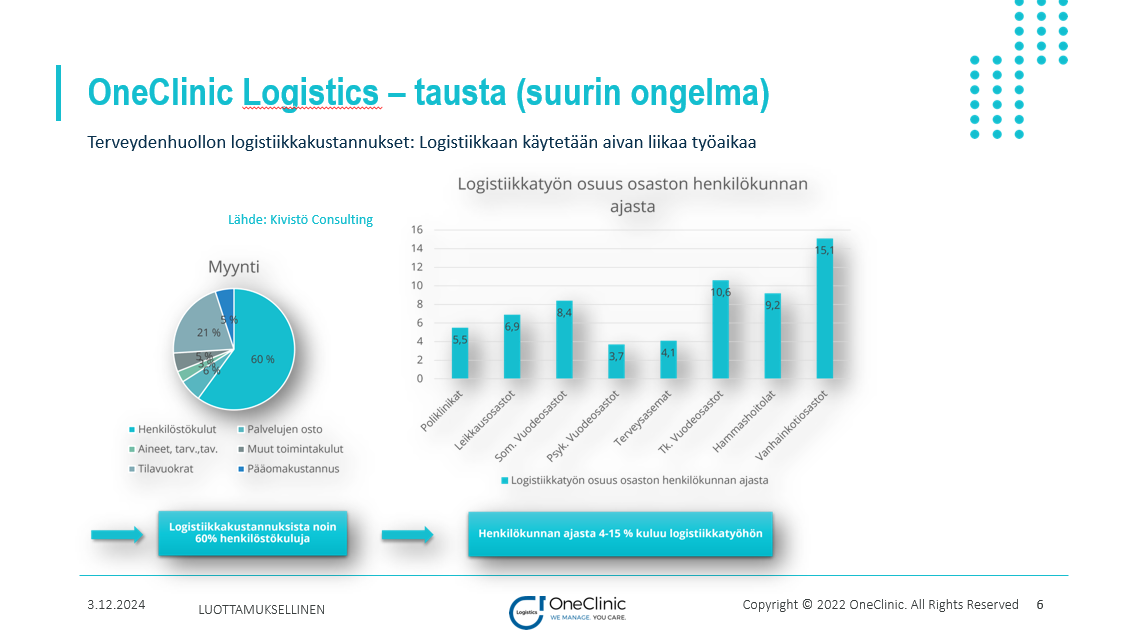The impact of good logistics on patient safety and staff well-being
The smooth running of logistics has a direct impact on the wellbeing of care staff, patient safety and the quality of care. Efficient solutions free up time for patient work, reduce stress and improve the overall system performance.
In my previous blog post, I discussed the workload of nursing staff and how a significant part of their working time is spent on non-nursing tasks, such as logistics and administrative tasks. Below is Timo Kivistö’s summary of his findings on how much time nurses spend on logistics:

This strain is directly reflected in well-being at work and coping, which are key factors in dealing with a crisis situation in the social and health care sector. At the same time, patient safety has become increasingly central as austerity programs and resource pressures challenge the quality and continuity of services.
Impact of logistics on patient safety
Enhanced logistics is not just an economic issue – it has a direct impact on patient safety and quality of care. When logistics runs smoothly, materials and medicines are always available at the right time and in the right place. This reduces delays, waiting times, and human error, which at their worst can compromise patient safety. For example, reducing medication waste and real-time tracking of materials can significantly reduce the risks posed by outdated or misplaced materials.
Patient safety is a cornerstone of social and healthcare services, but it cannot be taken for granted. With financial pressures forcing savings, it is important to ensure that patient safety is not compromised. This requires innovative solutions and effective support systems, such as optimised logistics processes to ensure that resources are used efficiently and effectively.
Well-being and productivity through optimised logistics
When users have been asked in an open-ended questionnaire after a comprehensive logistics digitalisation project what other benefits the current situation has brought compared to the old one, the answer is often that worries and stress have been reduced.
This is particularly important given the shortage of carers and its impact on working communities. Allowing carers to focus on patient care increases job satisfaction and improves retention, which in turn reduces recruitment costs.
A common goal: better quality care and better working conditions
In the healthcare sector, the impact of logistics development is far-reaching. While the financial savings are significant, equally important are the quality of care for patients and the working conditions of care staff. Supporting patient safety and well-being at work are key elements in meeting the challenges of the future – be it an ageing population or ever-increasing cost pressures.
Effective logistics is therefore not just a technical issue but is linked to the effectiveness and sustainability of the whole system. Developing solutions in this area requires collaboration, perseverance, and the courage to introduce reforms that support the interests of both patients and healthcare professionals.


